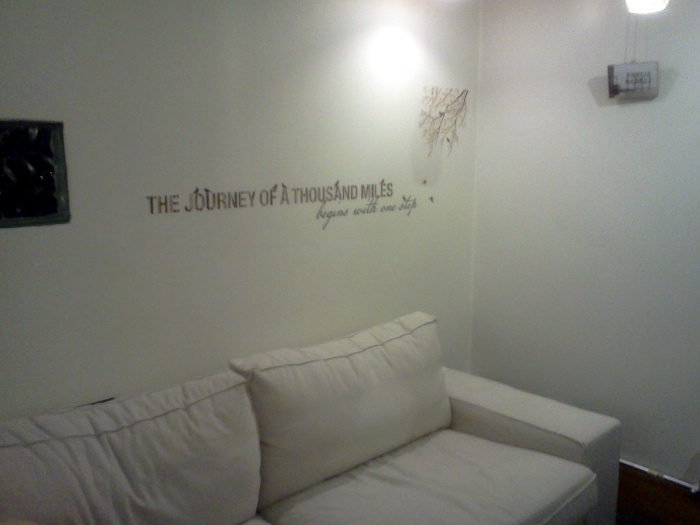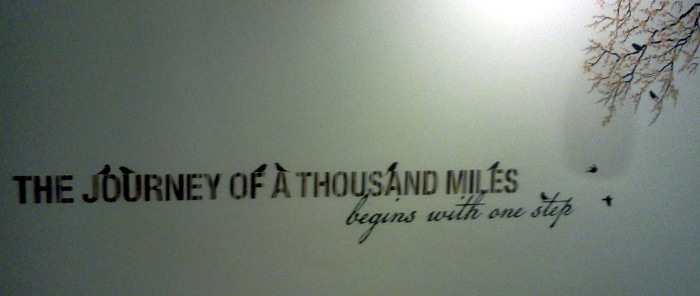Alternative art project ideas
I've been brainstorming some other ideas for my first art class assignment (make something data-based), unable to find a dataset from my past decade of education that actually forms the shape of a reasonable lightsaber hilt. Some other thoughts:
GPS buddy buttons
I'm in a long-distance relationship and my boyfriend and I both travel a lot (considering that we're both full-time students), mostly for work, but also to see our ridiculously geographically distributed families -- and of course each other. Sometimes those travels bring us further apart, sometimes closer together -- and I happened to catch an article on tiny GPS tracking chips (by "tiny" I mean 2.5mm x 2.0mm) and thought "huh, I wonder how tiny the ones available to the public in low quantities are and how annoying they are to interface with," then "ooh, wouldn't it be nifty to make two buttons that displayed the distance between them at any given point in time, with fairly instant updating and high geographic accuracy?"
This idea quickly died when I:
- Calculated the cost of components -- we're talking $120 minimum for the first quick n' dirty prototype for one of two pieces, and while I wish I had an extra $240 lying around, I... don't.
- Calculated the power consumption of components -- that $120 is without optimization for power consumption or extra power packs or anything like that; I'd be lucky to squeeze 3 hours out of this.
- Realized that my calculations for cost and power had neglected the fact that these devices would somehow need to send location updates to each other, which opened up another freakin' can of worms, even more expensive component options, and... yeah, let's just not go there. (I could make a bluetooth base station for each that captured and uploaded data to a webserver, and yanked the reverse, I could do a number of other things in this vein... but not in 10 days.)
- Thought about how much time the component sourcing and shipping would eat away at the less than two weeks I have to build the final product, and blanched at the thought of debugging under that much time pressure.
I thought about doing it as a mobile phone app, but we have different phones and I don't think I can reasonably write a WebOS app and an Android app (without ever having written a mobile app before) in 10 days. I thought about doing it via IP address, but we both do just about everything from either VPN or a screen session over ssh to a remote box. I thought of doing a single GPS device that tracked and displayed distance to a fixed location -- a luggage tag that displays how far you are from home, say -- and then thought about the TSA and how long that would last...
So unless something changes, I think this remains "fascinating idea that is too complicated to execute with the time and resources I have." I could, however, manually compute the geographic distance between us over the time we've been dating, and that might be an interesting dataset to play with. Hm.
Travel speed zoo
The travel-tracking site Dopplr displays, among other things, your "average speed" -- given the miles you've covered (between destinations) over a period of time, how fast would you have to go to cover that distance in that timeperiod at an absolutely steady speed? (So if you flew 10,000 miles over 5 months, your average is 2,000 miles per month, or about 2,000 miles per 3,600 hours, approximately 0.56mph.) Then: what goes at that speed? (An unladen African swallow?)
Take the years since college graduation and the start of grad school, break them into 3-month quarters, do this for each quarter, and lay out amusing visual representations for the average velocity of each of those 13 quarters. This might actually be interesting; I've traveled quite a bit since graduation, to some rather geographically far-flung places (Frankfurt, Cape Town, Wellington, Bangkok...) and under some punishing travel schedules.
Most of what I own is books
At the time I moved out of Boston about a year ago, my possessions (excluding my car) could all fit in my car, and:
- books outnumbered all other items combined
- books outweighed all other items combined
- books were greater in volume than all other items combined
It was a little scary. I've since purged many books out of necessity. That combined with the fact that I now own things like a sofa and a bed make these statements no longer true (and comparisons between my books and other belongings far less interesting), but examining my books might lead to interesting things. Gazing at the single shelf I've pared it down to, I can see:
- genre patterns -- a good chunk of math and science textbooks (which I'm good at), but also a fair amount of space devoted to learning various languages (which I'm... less good at) -- very little fiction, lots of cookbooks and music books...
- history patterns -- the book I've had the longest is a tie between my Mozart and Beethoven Sonata collections (and my mom used to play them when she was a kid); following that is my high school calculus textbook (which I loved so much that I bought it, all battered and held together with gaffer's tape, when the school retired it in favor of a new text the year I graduated). There are books I bought last week for class, and there's everything in between.
- source patterns -- books from my family, books from various friends, books from school, books I got for myself because I wanted them...
The hear-like-Mel device
I know some friends of mine have wanted this thing to exist for years -- a device that takes in audio and outputs a filtered version equivalent to what I hear (according to my last audiological profile). I could make this -- I would likely do it simply with analog components because seriously, Occam's Razor -- but I am obviously a terrible person to fine-tune and test the damn thing, and it's likely that weird distortions, noisy signals, etc. would result, possibly enough to make the device useless for its intended purpose. Might be quick enough to do, though, if I can find another electrical engineer with a good ear and a bunch of components to play with.
The silent piano repertoire
Another extension of the "play with my hearing profile" idea is to look at a number of piano pieces I played as a kid -- I wasn't brilliant by any means, but I was pretty good for my age group and won a bunch of competitions between the ages of 7 and 14. Particularly in the later years, I regularly played passages I couldn't hear -- the right hand went too high (I have a severe high-frequency loss). I still have a lot of my old repertoire with me (and still occasionally whack it out on a piano when me + sheet music + piano are colocated).
I could take a look at a number of these pieces, at the sounds I couldn't hear (or could only hear faintly -- I know precisely where on the keyboard my hearing cuts off under what conditions). A cheap shot would be to get recordings and then filter them so that only the parts I couldn't hear would play, but that would sound terribly annoying, like a chorus of melodic dog whistles, and I do not wish to inflict that sort of torture on my fellow man even if I wouldn't be bothered. (Also, how would I test it?)
But I could do a visualizer -- either a realtime display or a graph or something, showing how much I can/can't hear of a piece of music. Or I could re-edit the scores to only contain the parts I could hear in their entirety, then try to play them (gah, the fingering would suck, and huge swaths of sound would either be blank or skipped). Or do something examining the playing/practice adaptations I made to do those pieces.
Ask the metabrain
Do any of these ideas seem particularly intriguing? I'm done ruminating on this for a bit, and am going to sleep on it and probably start sketching tomorrow after I've got all my other work done.
And as a random note, here's one of the things I did today: my living room.


Hand-rubbed vinyl letters plus a "birds and tree branch" set equals "wow, this apartment now has style." Yes, they're premade components, but I'm still proud of myself for figuring out that I could combine them for Great Awesome, and the patience with which I was able to apply them (look, I'm ADHD... I'll take what I can get). Thanks to my friend Randy (who crashed here the past two nights en route from Chicago to Indianapolis and back) for excellent food (red velvet cookies), the kind of conversation that only stops when you're about to pass out on the floor/couch/desk, and interior design inspiration!